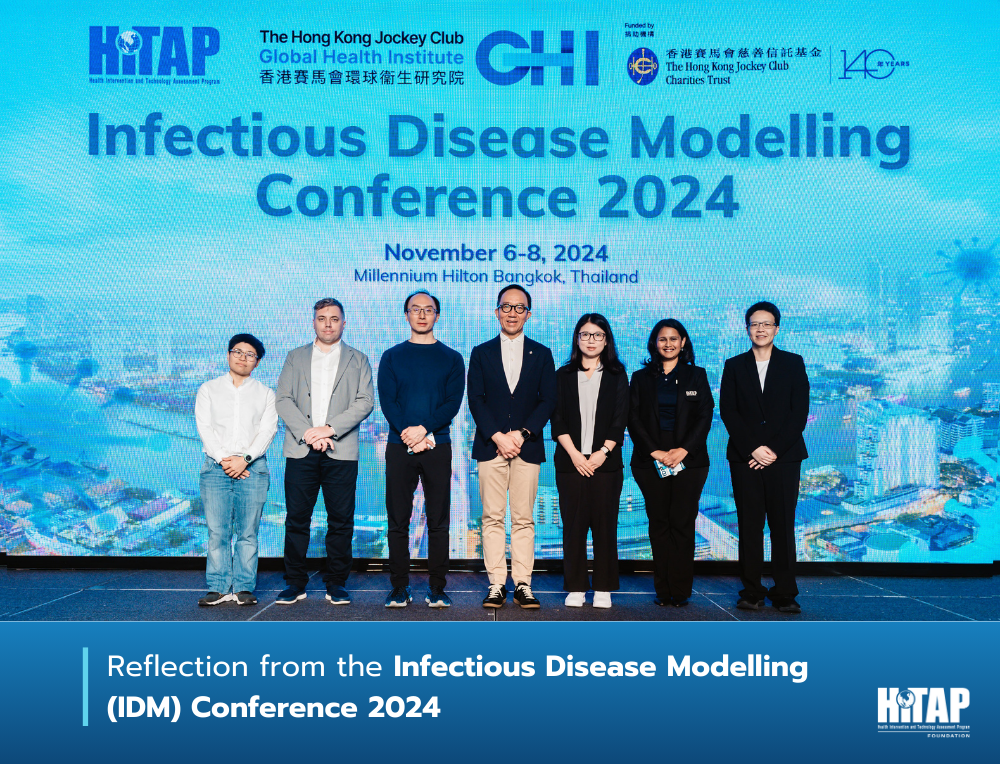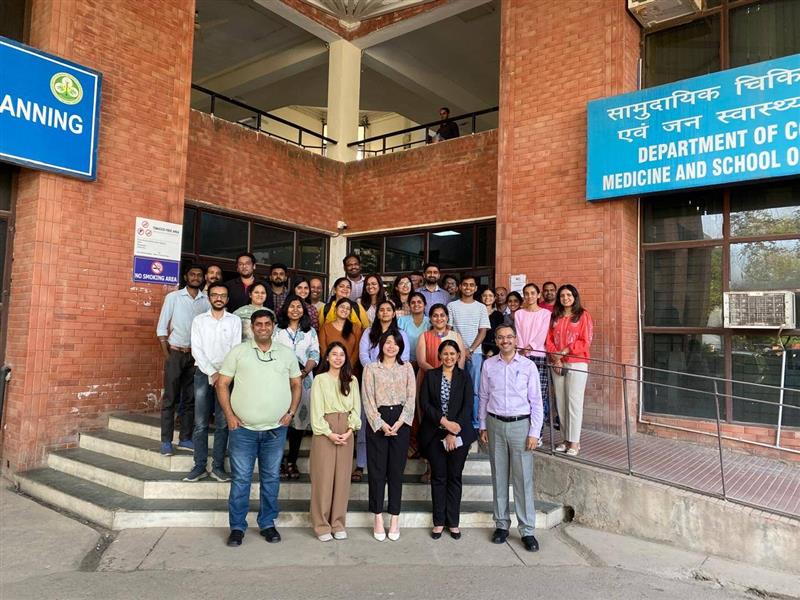Reflection from the Infectious Disease Modelling (IDM) Conference 2024


India has established Health Technology Assessment (HTA) to increase the use of evidence in informing health policy decisions. The Post-Graduate Institute of Medical Education and Research (PGIMER), a resource hub for HTA and a leading public health institution in India, hosted a workshop titled “Communication Science for Policy Making: A Health Technology Assessment Perspective” on 25 April 2024 in Chandigarh, India in collaboration with the Government of India, with a focus on building and improving communication with policymakers.
The Health Intervention and Technology Assessment Program (HITAP), Ministry of Public Health, Thailand, which has been collaborating with PGIMER on HTA, was invited to share its experience in developing effective policy briefs. The following day, HITAP engaged in knowledge-sharing sessions with PGIMER, exchanging experiences on HTA.
During the workshop, dignitaries from PGIMER and the Government of India provided context, discussing how HTA supports various healthcare programmes in the country. The importance of creating effective and eye-catching policy briefs was highlighted. Communication experts from India, the United States, and Thailand delivered insightful presentations on this topic. Ms. Vinod Kotwal, Member Secretary of IP &TAFS, NPPA, Government of India, provided a policymaker’s perspective on using scientific evidence. Dr. Hector Castro, CEO of Health R LLC and former Director of the Pan American Health Organization (PAHO) shared global experiences on using effective strategies for presenting HTA evidence and outlined essential elements for crafting compelling policy briefs targeted at policymakers. Ms. Benjarin Santatiwongchai from HITAP discussed constructing effective policy briefs, drawing on Thailand’s experience. Prof. Archana Singh from the School of Communication Studies, Panjab University, focused on designing policy briefs that capture the attention of readers, especially policymakers.
Following the presentations, the afternoon session featured an engaging group discussion where participants applied key takeaways from the earlier session to their policy briefs. The aim was to make the policy briefs concise, making content easy to digest; clear, presenting the message in a straightforward way; convincing, showing the impact to engage readers; consistent, aligning objectives with proposed solutions; and actionable, providing steps that can be implemented. Each group presented their revised policy briefs and received feedback from communication experts.
On the following day, Dr. Shankar Prinja led a lively discussion with PGIMER and HITAP staff, sharing HTA experiences through the lens of both India and Thailand. The collaborative dialogue set the stage for an afternoon session on Thailand’s application of HTA to achieve Universal Health Coverage (UHC) with participants, which included public health professionals, researchers, and students at PGIMER.
In summary, the workshop deepened participants’ understanding of HTA while equipping them with the skills to develop effective communication strategies, particularly for policy briefs. These briefs are a key tool for bridging the gap between technical information and policy communication. By highlighting the importance of translating research into actionable policy, the workshop emphasised how communication professionals’ perspectives can help researchers convey their messages clearly and effectively.
Acknowledgments
This article was reviewed by Benjarin Santatiwongchai and Natcha Kongkam.
Ms. Benjarin Santatiwongchai (Lead Content Creator), Ms. Phanitphan Eaimnon (Content Creator), and Ms. Saudamini Dabak (Head of the International Unit) participated in this study visit from HITAP.